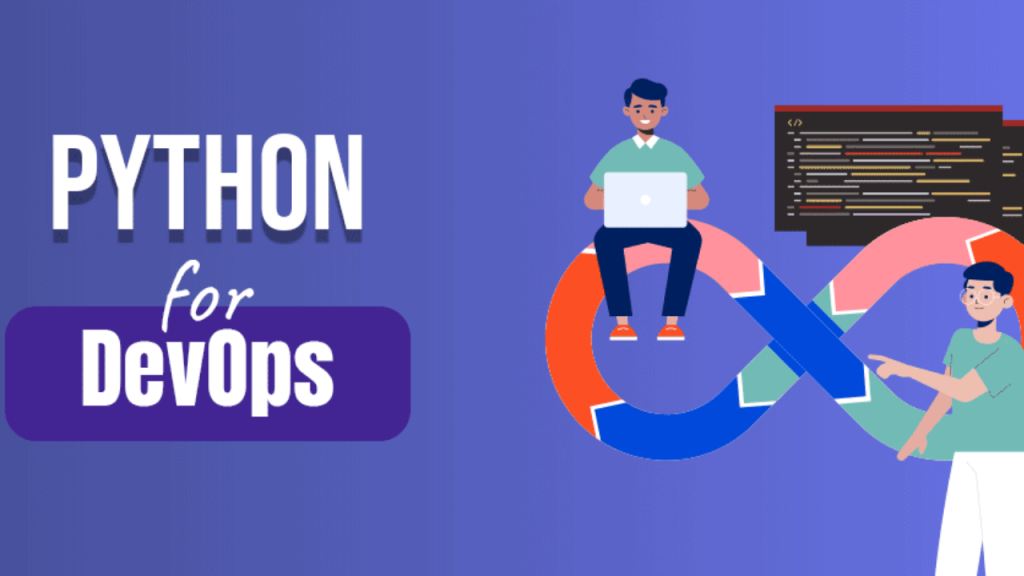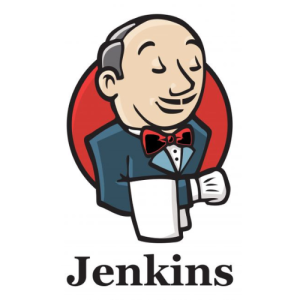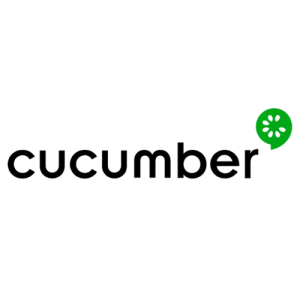DevOps Engineering with Cloud Computing
Delivering Professional IT and Project Management Training to learners from more than 30 countries for the last 20 Years. Our instructors are 15 to 20+ years of experienced, and are from the industry to ensure better tech industrial training. Provided jobs to 15,000+ learners; 10,000+ in the USA, with a stable salary from $85K to $250K in different big companies, and more 5,000 in other countries.
Average Salary!
Per annum a DevOps With Cloud Computing Engineer is earned around $200k-$250k

📚 Program Type: Job Placement Training
📅 Total Duration: 4 Months
🎓 Certification Type: Professional Certification
🌐 Study Mode: On Campus
🏛️ Operating Campus: Virginia
👨🏫 Instructor Experience: 15 to 20+ years

Salary Trends
Lorem ipsum dolor sit amet, consectetur adipiscing elit. Ut elit tellus, luctus nec ullamcorper mattis, pulvinar dapibus leo.

Career Opportunities
Lorem ipsum dolor sit amet, consectetur adipiscing elit. Ut elit tellus, luctus nec ullamcorper mattis, pulvinar dapibus leo.

Annual Growth
Lorem ipsum dolor sit amet, consectetur adipiscing elit. Ut elit tellus, luctus nec ullamcorper mattis, pulvinar dapibus leo.
Program Features

Don't Miss a Session
If you miss a class can makeup with another batch and recovery your study.

Your Preferred Time
Weekend or weekday, morning or evening options are available which is suitable and fit with your preferred time schedule.

Individual Learning Mentor
A person always ready to answer your all kinds of questions

Access for Lifetime
You will get all class, presentation, quizzes and support for Life time access.
Career Services

Mock Interview
Preparation
Exclusive Access to Intellipaat Job Portal
Career Oriented Session
Placement Assistant
1 on 1 Career Mentoring Session
Resume and Linkedin
Profile Building
Testimonials

This bootcamp gave me the skills to excel in DevOps. I landed my first job in weeks!
Liam S.
Designer
The cloud computing training was spot-on. I now work at a top tech company!
Amara K.
Student
Great hands-on projects and knowledgeable instructors. Highly recommend this program!
Tom H.
Student
The perfect mix of DevOps tools and cloud expertise. It set me up for career success!
Nia R.
DeveloperOur Alumni Work for Amazing Companies






Program Syllabus
Module 01: Linux Server Systems Administration, Virtual Machine
This module covers Linux server systems administration and virtual machine essentials, encompassing topics such as system configuration, security management, virtualisation technologies, and practical skills for deploying and managing virtual machines in a server environment.

Course Content
Module Lessons:
- Introduction to Linux Server Administration
- System Configuration and Management
- Security Management
- Virtualisation Essentials
- Deploying and Managing Virtual Machines
Tools and Technologies Covered:







Module 02: Windows Server Systems Administration, Virtual Machine
This module is centered on the administration of Windows Server systems and the essentials of virtual machines, exploring crucial subjects such as system configuration, security administration, virtualisation technologies, and hands-on proficiency in deploying and overseeing virtual machines within a Windows server environment.

Course Content
Module Lessons:
- Introduction to Windows Server Administration
- System Configuration and Management
- Security Administration
- Virtualisation Essentials
- Deploying and Managing Virtual Machines
Tools and Technologies Covered:





Module 03: Windows OS Essentials
This module provides essential insights into Windows operating system, covering fundamental topics including system navigation, configuration, security settings, software installation, and troubleshooting techniques for a comprehensive understanding and effective utilization of the Windows OS.

Course Content
Module Lessons:
- Introduction to Windows Operating System
- System Navigation and Configuration
- Security Settings and Management
- Software Installation and Management
- Troubleshooting and Maintenance
Tools and Technologies Covered:
![]()




CAPSTONE PROJECT 01: Linux OS, Windows OS
In this capstone project, students will integrate their knowledge of Linux and Windows operating systems, demonstrating proficiency in system administration, security management, and virtualization across both platforms through the implementation of a comprehensive and cohesive project.

Course Content
Module Lessons:
- Project Overview and Objectives
- Linux OS Configuration and Administration
- Windows OS Configuration and Administration
- Security Management Across Platforms
- Virtualization and Cross-Platform Integration
- Final Project Implementation and Presentation
Tools and Technologies Covered:






Module 04: AWS Solutions Architect - Associate
This module focuses on AWS Solutions Architect – Associate, encompassing key topics such as cloud architecture, infrastructure design, security, scalability, and best practices for building and deploying Amazon Web Services platform applications.project.

Course Content
Module Lessons:
- Introduction to AWS Solutions Architecture
- Designing Cloud Infrastructure
- Security and Identity Management
- Storage and Database Solutions
- Compute and Networking Services
- Monitoring and Optimization
- Best Practices for AWS Solutions Architect
Tools and Technologies Covered:





Capstone Project 02: AWS Solution Architecture
In this capstone project, participants will apply their knowledge of AWS Solution Architecture by designing and implementing a comprehensive cloud-based solution, covering aspects such as architecture design, security considerations, scalability, and best practices for optimal deployment on the Amazon Web Services platform.

Course Content
Module Lessons:
- Project Overview and Objective
- Architecture Design and Planning
- Implementation of Cloud Solution
- Security and Compliance
- Scalability and Optimization
- Testing and Deployment
- Documentation and Presentation
Tools and Technologies Covered:





Module 05: Python Essentials for DevOps Engineering
This module focuses on Python essentials tailored for DevOps, covering key topics including automation, scripting, infrastructure as code (laC), container orchestration, and integration with various DevOps tools to equip participants with programming skills for effective DevOps practices.

Course Content
Module Lessons:
- Python Basics for DevOps
- Scripting for Automation
- Infrastructure as Code (IaC)
- Python and DevOps Tools Integration
- Networking and APIs
- Debugging and Testing
- Advanced Python for DevOps
Tools and Technologies Covered:
![]()




Module 06: DevOps Tools and Techniques
This module explores a comprehensive range of DevOps tools and techniques, including Kubernetes, Docker, Prometheus, Jenkins, Cucumber, Ansible, SonarCube, and TerraForm, covering key aspects of containerisation, orchestration, continuous integration, automation, monitoring, and infrastructure as code to equip participants with essential skills for effective DevOps practices.

Course Content
Module Lessons:
- Containerization with Docker
- Orchestration with Kubernetes
- Continuous Integration with Jenkins
- Infrastructure as Code (IaC) with Terraform
- Automation with Ansible
- Monitoring with Prometheus
- Testing with Cucumber
- Code Quality with SonarQube
Tools and Technologies Covered:




Capstone Project 03: DevOps Engineering
In this capstone project, participants will demonstrate proficiency in DevOps engineering by integrating and applying a spectrum of tools and techniques, including Kubernetes, Docker, Prometheus, Jenkins, Cucumber, Ansible, SonarCube, and TerraForm, to design and implement a comprehensive solution that encompasses containerisation, continuous integration, automation, monitoring, and infrastructure as code

Course Content
Module Lessons:
- Project Planning and Requirements Gathering
- Designing Infrastructure as Code (IaC)
- Containerization and Orchestration
- Continuous Integration and Continuous Deployment (CI/CD)
- Configuration Management and Automation
- Monitoring and Performance Optimization
- Final Implementation and Deployment
- Reporting and Presentation
Tools and Technologies Covered:


![]()



Module 07: Agile Methodologies
This module explores Agile methodologies, encompassing key topics such as Scrum, Kanban, and Lean principles, agile project management, iterative development, and collaboration strategies to equip participants with the knowledge and skills needed for effective Agile software development practices.

Course Content
Module Lessons:
- Introduction to Agile
- Scrum Framework
- Core principles of Kanban
- Understanding Lean methodologies
- Agile Project Management
- Iterative and Incremental Development
- Collaboration and Communication in Agile
- Applying Agile Methodologies
Tools and Technologies Covered:




Module 08: Project Management Tools, Microsoft Office Apps
This module explores project management tools, with a specific emphasis on utilizing Office 365 apps, covering topics such as software selection, collaborative platforms, Gantt charts, task tracking, resource allocation, and effective communication strategies to equip the program participants with comprehensive project management skills.

Course Content
Module Lessons:
- Introduction to Project Management Tools
- Microsoft Office 365 for Project Management
- Task Tracking and Gantt Charts
- Resource Allocation and Budget Management
- Collaborative Platforms for Teams
- Effective Communication in Project Management
Tools and Technologies Covered:





Module 09: Cybersecurity Essentials
This module provides an overview of cybersecurity essentials, covering key topics such as network security, encryption, access controls, threat detection and mitigation, incident response, and best practices to equip participants with fundamental knowledge and skills for effective cybersecurity measures.

Course Content
Module Lessons:
- Importance of cybersecurity
- Common Cyber Threats
- Cybersecurity Controls
- Security Frameworks and Standards
- Identity and Access Management (IAM)
- Secure Network Practices
Tools and Technologies Covered:





Capstone Project 04: Agile, PM Tools, Office Apps, Cybersecurity
In this capstone project, participants will demonstrate comprehensive proficiency by integrating Agile methodologies, project management tools, Office 365 applications, and cybersecurity essentials, showcasing their ability to design and implement a well-rounded solution that addresses iterative development, effective project management, enhanced productivity, and robust cybersecurity measures.

Course Content
Module Lessons:
- Agile Methodology Application
- Project Management Integration
- Office 365 Apps for Collaboration
- Cybersecurity Implementation
- Final Project Execution
Tools and Technologies Covered:


![]()

![]()


Certification

Frequently Asked Questions
What is DevOps Engineering with Cloud Computing?
It is a specialized field that integrates DevOps practices with cloud computing to automate and streamline software development, deployment, and infrastructure management using platforms like AWS, Azure, and Google Cloud.
What is the DevOps Engineering course fee?
The course fee typically ranges from $3,000 to $10,000
What is the average salary of a DevOps Engineer?
The average annual salary for a DevOps Engineer in the USA is $250,000 to $260,000, with entry-level positions starting around $190,000 and senior roles exceeding $260,000.
What job placement support is available at PeopleNTech?
- Resume building and interview preparation.
- Networking opportunities with recruiters and hiring partners.
- Job placement assistance with access to DevOps-related roles in top companies.
What happens if I miss a class?
We provide recorded sessions or makeup classes. Additionally, live mentorship or one-on-one tutoring is often available to ensure no missed content.
How do I enroll in this course?
You can enroll online by:
- Visiting the training provider’s website.
- Filling out an application form.
- Paying the course fee directly at our office visit.
Is funding or financial aid available?
You can apply for WIOA Federal Funding benefits to join the program if you are located in Virginia. Simply visit your County Office and discuss your interest in joining a skill-based professional training program at PeopleNTech with the Case Managers. They will ask for basic information and guide you to fill out a form. Once completed, you can submit your application to determine your eligibility for funding.
Are certifications included in the course?
- AWS Certified DevOps Engineer – Professional.
- Microsoft Azure DevOps Engineer Expert.
- Google Professional Cloud DevOps Engineer.
What job roles can I pursue after completing this course?
- DevOps Engineer
- Cloud Engineer
- Site Reliability Engineer (SRE)
- Automation Engineer
- Platform Engineer
What industries hire DevOps Engineers?
- Key industries include:
- Technology and IT services.
- Financial services.
- Healthcare.
- E-commerce and retail.
- Media and entertainment.
How long does the course take to complete?
Our course plan for 12 to 16 weeks for full-time programs or 24 to 36 weeks for part-time options.
What’s the job placement success rate?
Reputable programs boast 70% to 90% placement rates, with many graduates landing roles within 3-6 months of completing the course.



